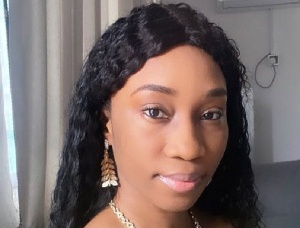 Ogey Obi also known as Kemi Alabi
Ogey Obi also known as Kemi Alabi
In October 2019, the BBC released a documentary that sent shock waves through the academic community in West Africa.
Universities in the two leading economies of West Africa had been captured in the documentary allegedly asking for sex in exchange for academic-related favours.
It was shocking, not because it is the first time people have heard of lecturers taking advantage of their positions to coerce students to exchange sex for favours, instead, this is the first time most have us have seen it happen live on a video camera.
The lecturers involved are not actors but real-life highly respected members of the academic communities in their respective communities.
In Ghana, Dr Ransford Gyampo and Dr Paul Butakor were implicated in the Sex For Grades documentary.
When the documentary was released, Kiki Mordi, a Nigerian journalist, was credited for the story, however, it had later emerged that another Nigerian journalist called Ogey Obi, but anonymously referred to as Kemi Alabi was actually the brainchild behind the documentary.
Ogey claims she is the one who developed the idea, researched it and even pitched the story for it to be documented.
However, she claimed to have been unceremoniously sidelined in all the accolades that Kiki Mordi has been receiving.
I GIVE UP, YOU WIN!!
— ogey (@ogeobi_) December 12, 2020
I was a young and naive baby-journalist - 24 at the time. I was eager to please, not knowledgeable enough about the politics of these things and trusted that C wouldn’t use my exceptional skills and dumb me for someone he felt had a more sensational appeal
Started reading newspapers as a pretend news anchor when I was just a little girl. All I wanted to do with my life was to be the next Christiane Amanpour or Anas Aremeyaw.
— ogey (@ogeobi_) December 13, 2020
Forgive me some day but it’s better this way. pic.twitter.com/GQ5hFCPGSK